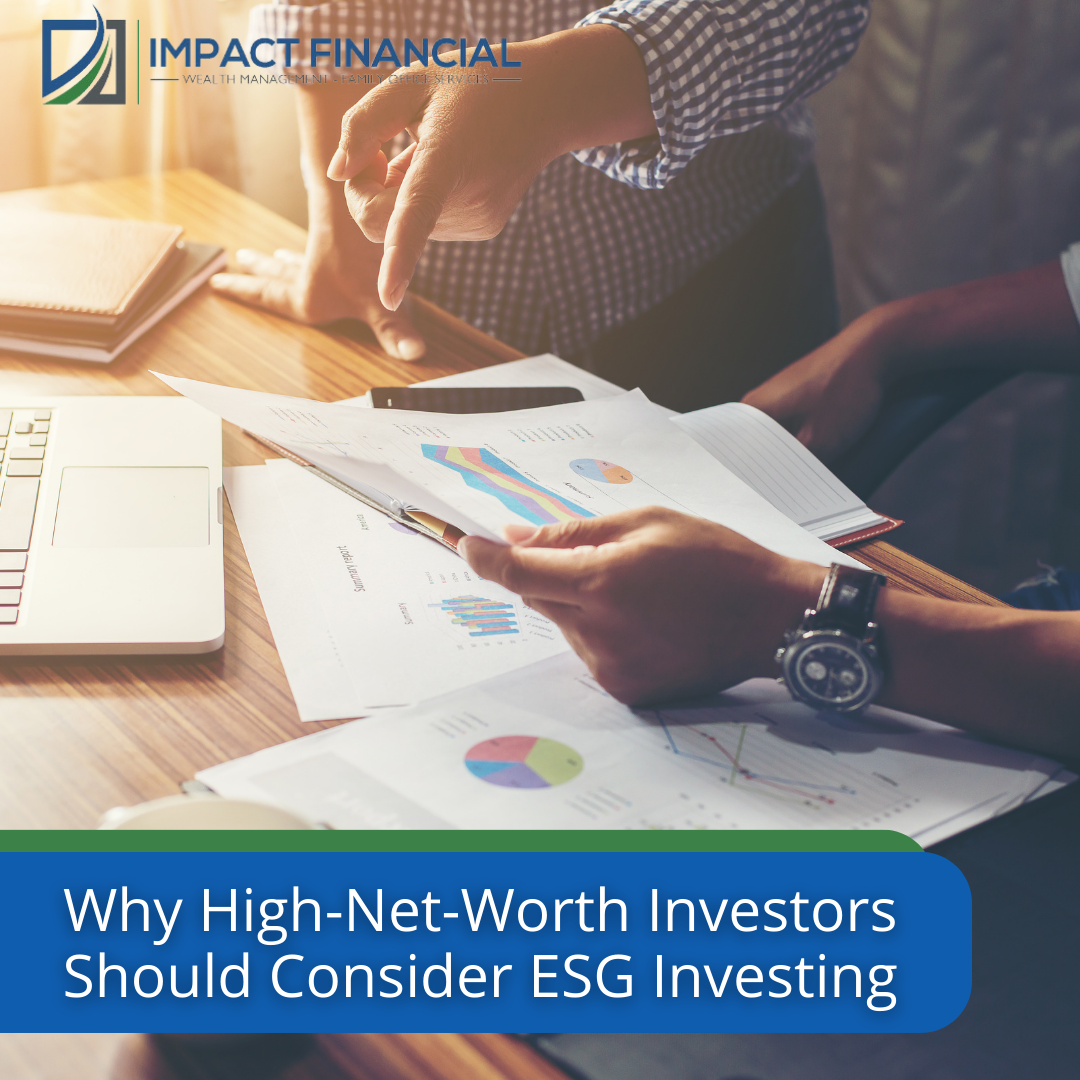The world is changing. At one time, investors focused all their energy and money on generating positive returns. Today, however, many have pivoted to generating those returns while positively impacting society and the environment. For this emerging group of investors, environmental, social, and governance (ESG) investing is a way for them to invest where non-financial factors are critical in deciding whether or not and where to invest.
Over the past decade, this push for change stemmed primarily from the 2015 Paris Agreement and the three goals of sustainability: climate change mitigation, adaptation, and economics. Investors research and contribute money to companies involved in some aspect of social or environmental change, how corporations are structured and managed, and the diversity and inclusion practices regarding their demographics.
ESG investing is relatively new, but this movement has noticeable momentum. In any investment pursuit, getting in early is generally a good idea because, as any investor knows, time is the main factor in any investment plan, followed by your contribution strategy. There is a quote that says, “Interest in your passion pays the best interest.” Take this with a grain of salt as you can’t pre-determine the market, so there is no accurate way to know whether or not your investment will generate a positive return.
However, the pearl of wisdom within the quote is that you are contributing toward a cause that matters to you and that will make it all the more meaningful. Also, investing in a company whose ideals adhere to your own may encourage you to be more enthusiastic about conducting adequate research into that company and giving you a better benchmark toward your risk-tolerance.
Some high-net-worth investors have been wary of the lack of standard reporting guidelines and monitoring by large governing bodies such as the Securities and Exchange Commission (SEC). There are already significant risks with any form of investing, so skepticism runs high for some older high-net-worth prospective investors concerned about the potential for losses. This statistic could explain why only about 44% of high-net-worth individuals invest in ESG.
What We Know:
- High-net-worth individuals tend to have an appetite for ESG issues.
- It is still very new and growing in popularity.
- There isn’t yet one standard regulatory set of reporting rules; however, the SEC has been working on this as investors continue to seek more information on sustainability and what risks affect the public companies they own. According to the SEC, they have been working to ensure that investors receive accurate, consistent, and comparable risk-related information they need in public filings that align with their investment decision-making.
- According to PricewaterhouseCoopers (PwC), a significant number of high-net-worth investors are reconsidering their wealth management relationship as they seek personalized experiences.
- A lack of diversity in management and board of directors is a trait of companies that don’t do as well.
As with all investing, taking the necessary steps to preserve wealth and manage risk tolerance is essential. Consider consulting a financial professional to help you understand better the nuances, pros, and cons of ESG investing and how your decisions could impact your financial goals.
Important Disclosures:
The opinions voiced in this material are for general information only and are not intended to provide specific advice or recommendations for any individual. To determine which investment(s) may be appropriate for you, consult your financial professional prior to investing.
Environmental Social Governance (ESG) / Socially Responsible Investing (SRI) investing has certain risks based on the fact that the criteria excludes securities of certain issuers for non-financial reasons and, therefore, investors may forgo some market opportunities and the universe of investments available will be smaller.
Investing involves risks including possible loss of principal. No investment strategy or risk management technique can guarantee return or eliminate risk in all market environments.
All information is believed to be from reliable sources; however, LPL Financial makes no representation as to its completeness or accuracy.
This article was prepared by LPL Marketing Solutions
Sources:
SEC.gov | Climate-Related Disclosures/ESG Investing
The SEC’s New Rule May Inadvertently Kill ESG Funds (forbes.com)
High net worth investor survey: PwC
LPL Tracking # 492504


